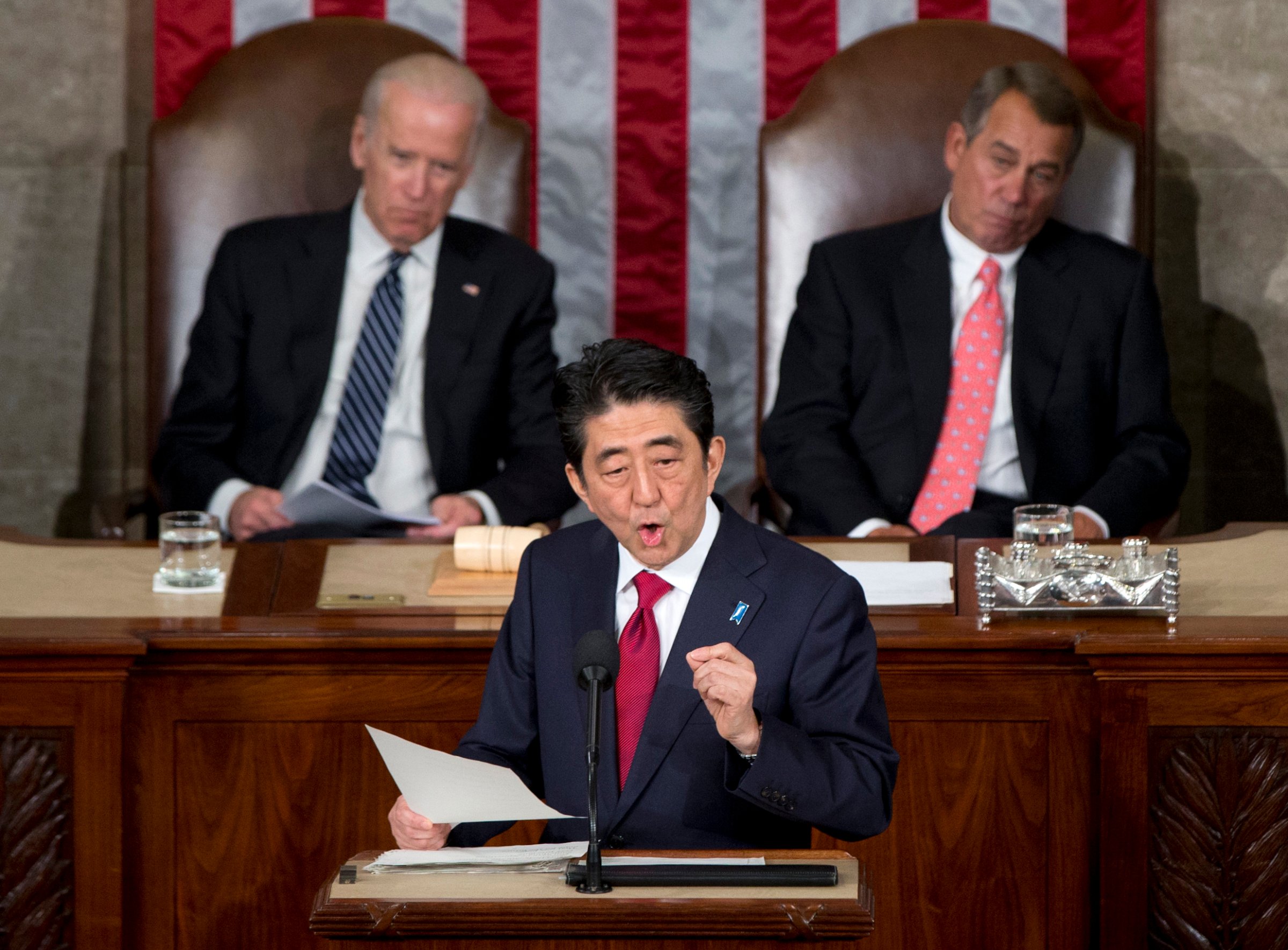
Shinzo Abe landed in the U.S. this week to great fanfare. Delivering the first-ever speech by a Japanese Prime Minister to a joint session of Congress, Abe proclaimed his resolve to “to take yet more responsibility for the peace and stability in the world.” Japan is busy trying to shape a new foreign policy course for itself after years of relative isolation on the geopolitical stage, a result of its pacifist constitution that dates back to its defeat and occupation by the U.S. after World War II.
Yet while much attention has been focused on Abe’s overture to Washington, just as critical to Japan’s re-emergence on the global stage is its relationship with its Asian neighbors — especially China and South Korea. How these two economic powers respond to a more assertive Japan will go a long way in determining how far Abe’s ambitions will take Tokyo.
After decades of hostility, Japan-China relations have markedly improved over the past six months. Abe and Chinese President Xi Jinping have had productive encounters over the past two years, and have agreed to keep the lines of communication open going forward. China and Japan have both promised to use “dialogue and consultation” to deal with territorial disputes in the East China Sea and to work towards developing crisis mechanisms to avoid escalation.
While this might not sound like much, it is a significant achievement for two Asian heavyweights who have long been at each other’s throats. China’s rise casts a long shadow over all of Asia, but Japan has signaled a willingness to collaborate, boding well for the future. Japan’s dramatically improved relationship with India should also make China cautious in its dealings with Japan. There remain a host of issues to work out — particularly over Japan’s actions during World War II — but the China-Japan relationship now has the best trajectory of any bilateral relationship in the G20.
Yet for all the progress Japan has made with China, its relationship with South Korea — technically an ally — remains strained. The trilateral relationship among the U.S., Japan and South Korea is critical to American plans for the region, but historical disputes have threatened this framework. During World War II, South Korean women were forced to work for the occupying Japanese army as “comfort women” — a euphemism for sex slaves.
While Abe said in a speech at Harvard University on Monday that his “heart aches even now” for the victims, he has stopped short of officially recognizing and apologizing for the practice, as Seoul has demanded. Abe maintains that previous government apologies for Japanese wartime aggressions are sufficient. The South Koreans clearly disagree, with a Korean newspaper denouncing Abe as “the root of the problem” on its front page this week. With a sputtering economy and a government weakened by scandal — South Korea’s Prime Minister resigned on April 27 after bribery accusations — it is no wonder that Seoul is eyeing Japan’s aspirations warily.
The U.S. has tried to stay out of this charged dispute, and is taking a page from its playbook with another key American ally: Turkey. Out of concerns for Turkish feelings, President Obama has refrained from uttering the G word to describe the mass killing of Armenians in Turkey early in the last century. That caution — even though most historians accept that a genocide occurred — is calculated to avoid damaging a strategically important relationship.
In Japan, Abe has the political capital to apologize for historical aggression, but chooses not to. Japan is too important to Obama’s “pivot to Asia” strategy to risk estranging its leaders, especially with the critical Trans-Pacific Partnership trade deal on the horizon.
If the pivot to Asia is to succeed and Japan’s new foreign policy ambitions are to be realized, America’s democratic allies in Asia need to find a way to move forward. Abe is talking in the U.S., but what matters is whether Asia is listening.
More Must-Reads from TIME
- Donald Trump Is TIME's 2024 Person of the Year
- Why We Chose Trump as Person of the Year
- Is Intermittent Fasting Good or Bad for You?
- The 100 Must-Read Books of 2024
- The 20 Best Christmas TV Episodes
- Column: If Optimism Feels Ridiculous Now, Try Hope
- The Future of Climate Action Is Trade Policy
- Merle Bombardieri Is Helping People Make the Baby Decision
Contact us at letters@time.com